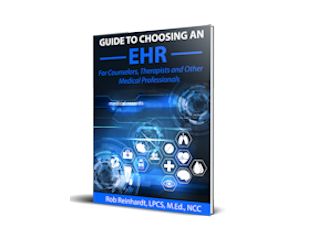More Than Just a Free Newsletter
Become a Tame Your Practice member for FREE and receive our newsletter, special offers, and exclusive members-only content.
EHR – Practice Management System Features – HIPAA Redux
This is the tenth article in my series on Cloud Based EHR / Practice Management Systems. For a more detailed discussion, as well as a five-stop process for selecting an EHR, check out the Guide to Choosing an EHR.
One of the most important things I’ve learned during my evaluation of Cloud-Based EHR / Practice Management Systems is that not all HIPAA Business Associate Agreements (BAA) are equal. This was brought into focus for me when I had an attorney, specializing in HIPAA, review the BAA of one of the vendors. Additionally, she brought to my awareness some concerns in that vendor’s Terms of Service (TOS). This subject has since garnered increased attention from me during my evaluation of all of these services. We’ve even partnered with Person Centered Tech to incorporate their HIPAA-pporpriateness reviews.
I thought I’d take a moment to point out some of the important issues that come up. More importantly, I hope this is an impetus for everyone (and their lawyer) to take a very close look at both the HIPAA BAA and Terms of Service you are agreeing to when utilizing a vendor’s services. The following are just a handful of the things to consider within these two documents. Because of the importance of the data we are dealing with, it’s imperative that attention be paid to the entire scope and terms of your relationship to the vendor.
It’s important to note that I am not a lawyer and this does not constitute legal advice. I strongly encourage practices to consult with their attorney on this topic.
Availability
The first thing to consider is whether the vendor’s BAA and TOS are readily available. Some vendors I’ve spoken with could not, or would not produce their BAA and/or TOS when requested. This throws up a red flag for me. One vendor, in particular, admitted they hadn’t even had a BAA despite handling people’s PHI for over a year. They’ve since developed one, but this speaks to the importance of checking all the details before using a product. In my opinion, a company should be ready to stand behind their product, and their BAA and TOS are two of the most tangible ways they can do so. In some cases, you only see the TOS when you sign up for the account. Searching for it beyond that might lead to a dead end. I encourage practices to be sure these documents are readily available and that there are statements requiring the vendor to contact you should changes occur to either document.
Breach/HITECH
On that note, unless your practice (and its attorney) are comfortable with a basic (includes everything from the future) BAA, it’s important to make sure there are stipulations for how a breach of security is handled. Specifically, as a covered entity, a practice is required to notify all affected parties (i.e. your patients) of a breach within 60 days. In order to ensure compliance, you would need to be informed by your vendor of a breach much sooner than that. I’ve seen BAAs where the vendor noted they must notify of a breach within 60 days, apparently interpreting the requirements of HIPAA as they would apply to themselves. Unfortunately, this would leave an affected practice no window for compliance themselves.
Damages/Liability
It’s also important to note that a practice stands to suffer damages if there is a breach or loss of data. Knowing what a BAA and/or TOS allows (or doesn’t) in the form of damages is important. Some vendors’ documents acknowledge the damage that would result from these situations and stipulate exactly what costs they will cover, effectively offering you a form of guarantee (if it breaks, and it’s our fault, we’ll pay for the damages). Other vendors, through their BAA/TOS, place limitations on the damages they will pay for, even if the damage is due to their negligence. Knowing how you will be affected should such a catastrophe happen is important in evaluating these products.
By no means is this an exhaustive list of items you should consider when evaluating the BAA and TOS of a vendor. I strongly encourage you consult an attorney in determining if the BAA/TOS of a vendor is acceptable.
Next Article: Miscellaneous
Return to the Table of Contents
Get the Complete Guide
Get fully informed and understand all of the implications of your EHR selection in the Guide to Choosing an EHR. In this book, Rob goes into detail and provides a step by step process for selecting the best fit EHR for your practice.
Related News
Similar articles you might be interested in!
Tame Your Practice Free Membership
Tame Your Practice membership is free and provides therapists access to exclusive content, discounts, and deals from partners!
Recommended Technology, Tools, and Resources for Therapists and Counselors
Recommendations for technology, web sites, secure email, phone, credit card processing, therapy tools/interventions, podcasts, and much more!
Health Information Exchanges (HIE) and How They May Affect Your Practice
Health Information Exchanges (HIE) are an initiative related to the Affordable Care Act and the HITECH Act. Their purpose is to ease the communication between the EHR/systems of various providers of health care, because the EHRs themselves are behind in doing so (i.e. interoperability).
About the Author
Rob has been covering technology and business news for mental health professionals since 2011. His extensive experience in IT, business, and private practice allow him to synthesize information in a friendly, digestible manner. He also enjoys time with his family, ultimate frisbee, and board gaming.





